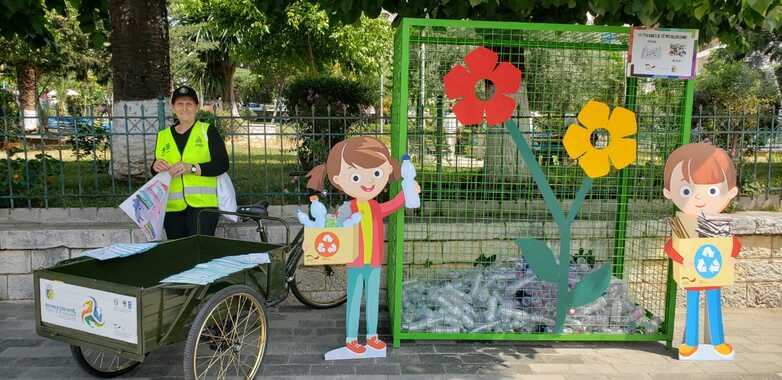Leading the transition towards a circular economy in Albania
Circular economy for sustainable urban development
-
Commissioning Party
German Federal Ministry for Economic Cooperation and Development (BMZ)
-
Cofinancier
European Union
-
Country
-
Lead executing agency
More
-
Overall term
2023 to 2027
-
Other Stakeholders
National Agency for Water Supply and Sanitation
-
Products and expertise
Sustainable infrastructure: water, energy, transport
Context
Albania's waste sector is characterised by a linear approach and growing waste amounts. It offers few incentives for shifting towards a circular economy where waste is managed as a resource. In July 2022, the European Union (EU) opened accession negotiations with Albania. In this context, Albania needs to adapt to EU legislation on environmental standards by setting necessary reduction targets.
Objective
Albania is moving closer towards a circular economy and is improving energy efficiency in wastewater treatment, creating more green jobs and improving citizens’ health.

Approach
The project aims to improve the ability of public and private actors to implement technical and organisational measures and processes that promote the development of a circular economy. By aligning with key objectives set by the Government of Albania and the Ministry of Tourism and Environment, the project focuses on:
- accelerating the transition to a circular economy by bringing the regulatory framework more into line with EU requirements and policy documents,
- boosting institutional capabilities in digital data management,
- implementing Extended Producer Responsibility schemes for packaging waste and electrical and electronic equipment (WEEE) and by introducing economic instruments to support waste reduction and separation,
- implementing circular economy measures for waste management services with a focus on recycling and composting as well as energy efficiency measures in wastewater treatment plants, and
- supporting the private sector, non-profit organisations and academic institutions in developing innovative and gender-responsive green products, services and circular business models.
Last update: January 2024







